Kingdom Of The Planet Of The Apes Is More Restart Than Sequel

This 2.5-hour, extra-long-feeling movie, Kingdom of the Planet of the Apes, can easily be dismissed as confusing and boring. But, if you give it a chance, we might see it lead somewhere interesting.
Before we get started, let me admit that I am not a die-hard Planet of the Apes fan. I didn’t even realize there were so many movies! My late grandmother was a huge fan of the Charlton Heston film from 1968, and I watched the first remake with Mark Wahlberg because, well, it was Marky Mark. Like granny like granddaughter. So, I went into Kingdom of the Planet of the Apes with an open mind.
Moving Along The Rebooted Timeline
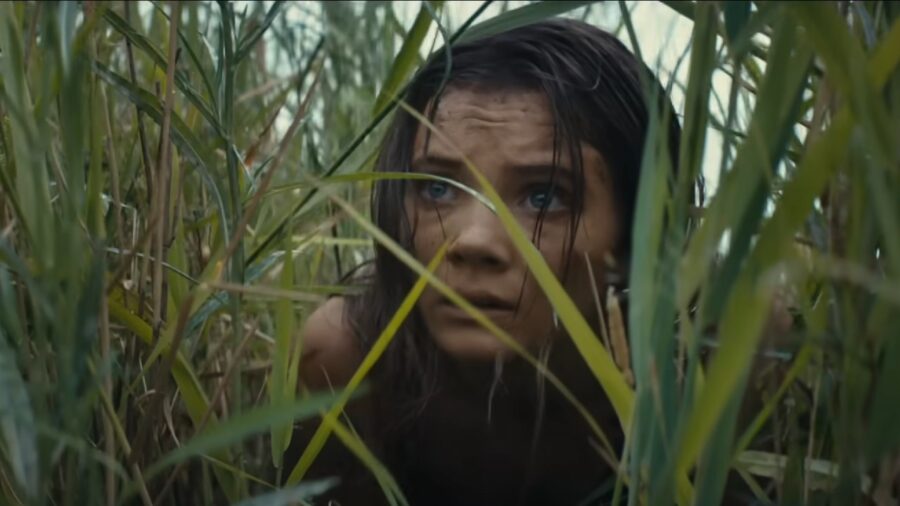
I had also seen the James Franco film, the true precursor to Kingdom of the Planet of the Apes, and the follow-up with Woody Harrelson. The first two films center around an ape named Caesar, “the first elder.” He is raised by Franco’s character, who is experimenting on a drug to save his father from the debilitating effects of Alzheimer’s. Instead, as Rise of the Planet of the Apes shows us, the drug causes the release of a virus that makes apes super intelligent, and humans lose intelligence.
Great Ape Politics
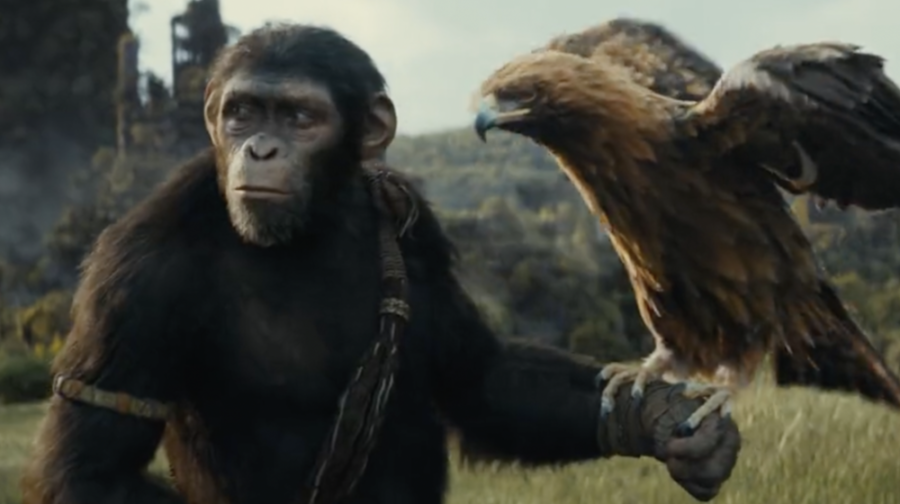
By the second film before Kingdom of the Planet of the Apes, War for the Planet of the Apes, humans who can still talk and think battle apes for control of Earth. Caesar has risen to power amongst the apes, and his goal is to find peace between humans and apes. Of course, we all know the bad apples ruin it for all of us, which happens among humans and apes. The film ends with hostilities and separation between apes and humans.
Far from following up on Caesar’s death, Kingdom of the Planet of the Apes leaps forward hundreds of years, or as the film says, “many generations later.” We enter the scene with three young apes looking for eggs, climbing and swinging higher and higher into the jungle. The most successful among them is Noa. Quickly, his village is destroyed by a warrior clan of apes who claim to be doing their work “for Caesar!”
Introduces New Questions
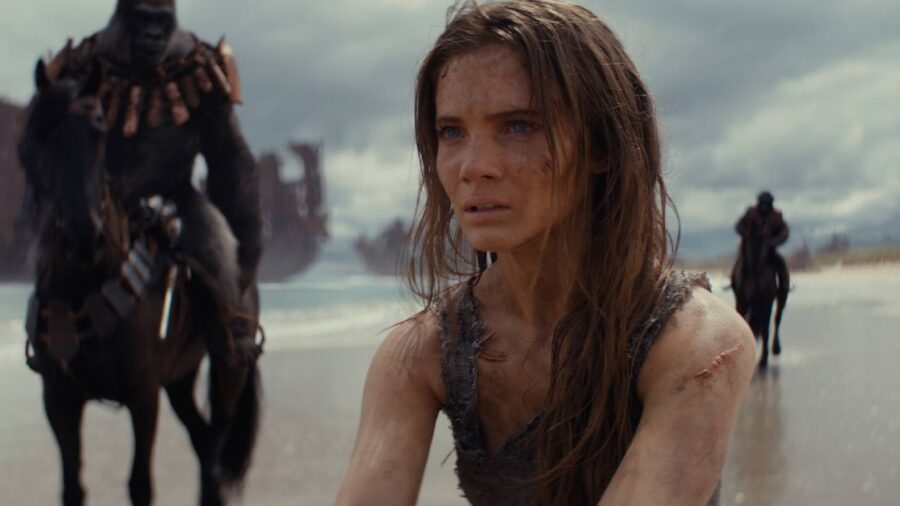
The first hour and a half of Kingdom of the Planet of the Apes is slow and confusing. I had no idea what was happening. Why is Noa’s clan focused on eagles? Why do they bond over eagle’s eggs? Why is this female human, “Nova,” following Noa? It’s all very weird, and it’s not even thrilling or mysterious. The scenery is gorgeous, and the fight scenes are epic, but what is happening?
Setting The Stage For A Bigger Sequel
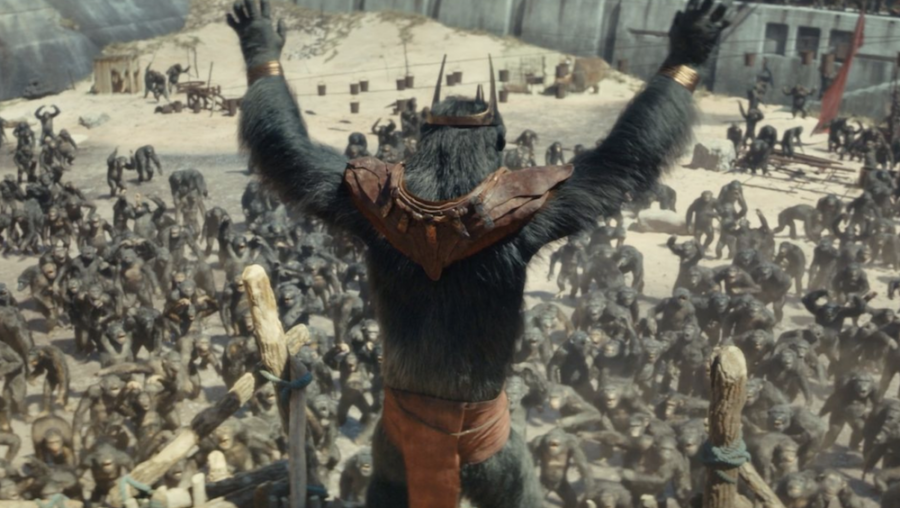
Then, in the last hour of Kingdom of the Planet of the Apes, you realize you’re being told an origin story. We now live in a time when warrior clans of apes hope to find the technology left by humans and get rid of humans once and for all. Those humans who have not been infected by the virus are seeking a way to regain what they’ve lost and hopefully find a cure for the virus. I finally found myself getting excited for what was to come.
Kingdom Of The Planet Of The Apes Is Now In Theaters
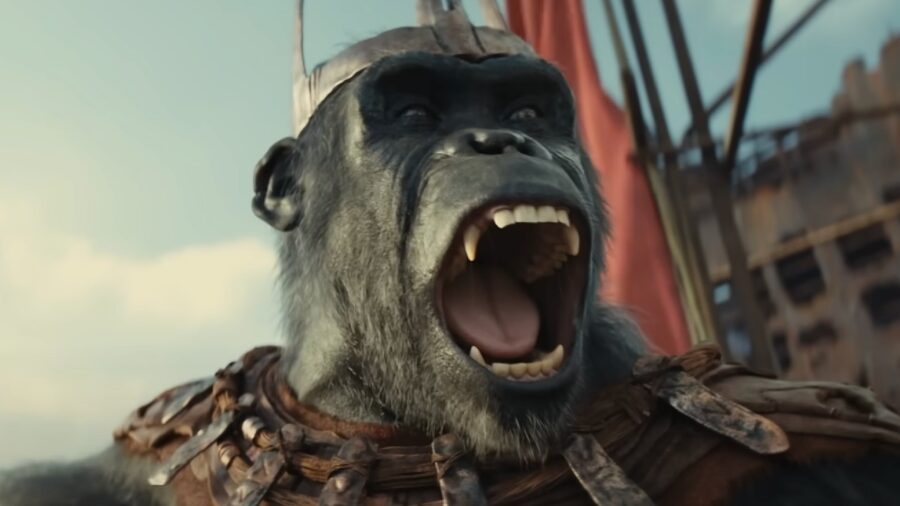

REVIEW SCORE
Can humans and hyper-intelligent apes live peacefully on the same planet? Can they coexist? Will they even try? These questions are important ones for this storyline, and they are barely scratched at in Kingdom of the Planet of the Apes, but if my instinct is right, another film or two could easily make fantastic blockbusters out of these questions, and I will buy tickets to see what answers they come up with. Who knows, maybe we’ll get a Wahlberg cameo.
The film bored me half to death for an hour and a half, but I still think it’s worth seeing. The worldbuilding, and the setup for a new trilogy, is just that well done.












